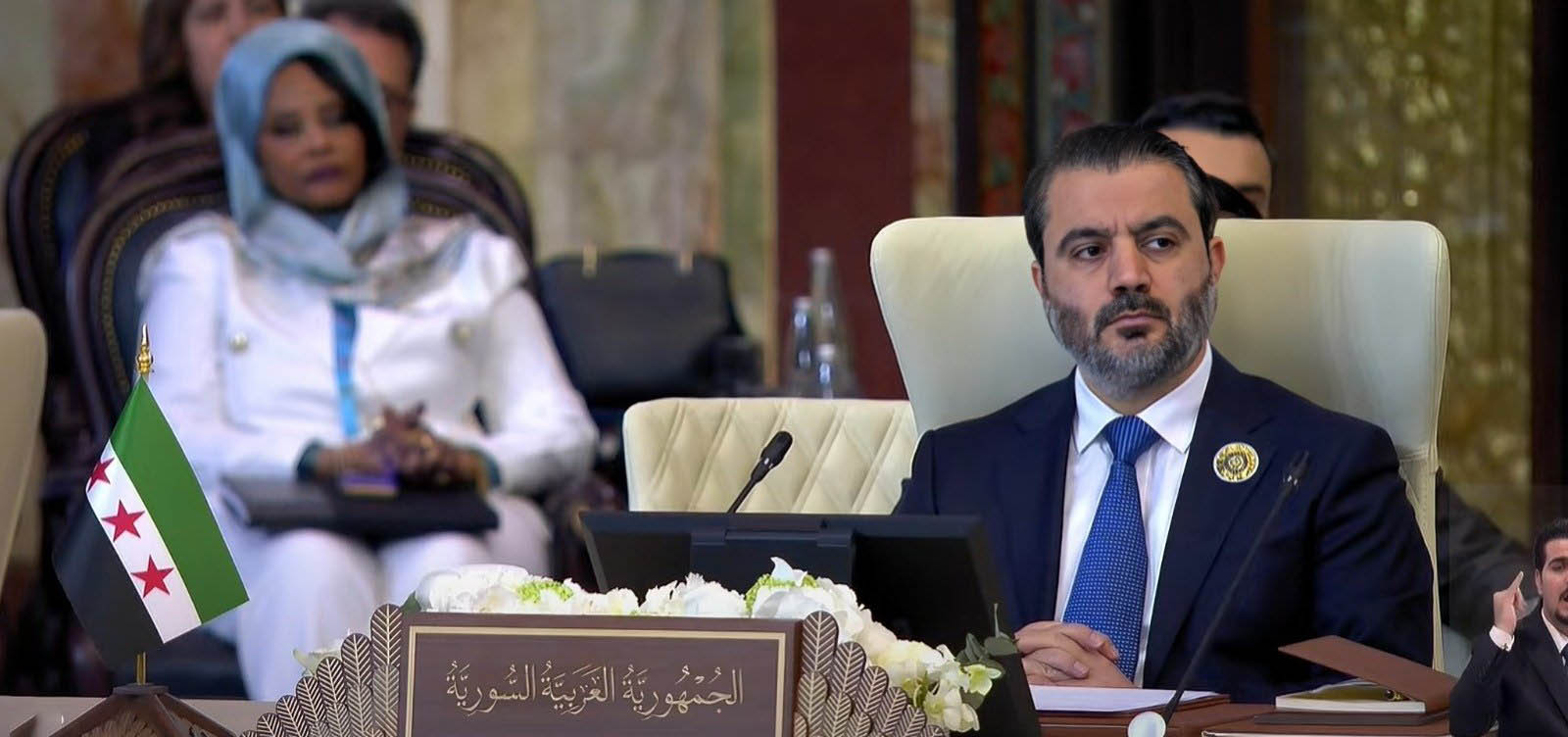Syrian FM: From Baghdad, Syria Reclaims Its Place in the Arab Fold
Shaybani underscored that Syria, after enduring years of destruction and division, is returning to the Arab League with a renewed vision rooted in national unity and inclusive governance.

By Ahora Qadi
ERBIL (Kurdistan24) – In a speech delivered during the opening session of the 34th Arab League Summit in Baghdad, Syrian Foreign Minister Asaad al-Shaybani emphasized that Syria belongs to all Syrians, without exclusion or marginalization, and that unity and reconciliation among Arab states must be the foundation for regional renewal.
“Our gathering today in beloved Baghdad, the capital of authentic Arabism, is a historic opportunity to renew the bonds of unity and solidarity,” Shaybani declared, expressing gratitude to Iraq for its hospitality and leadership.
Syria Returns with a Message of Inclusion and Sovereignty
Shaybani underscored that Syria, after enduring years of destruction and division, is returning to the Arab League with a renewed vision rooted in national unity and inclusive governance.
“Syria has embarked on a genuine process of national recovery—one based on the conviction that Syria is for all Syrians,” he said. “There is no place for marginalization or exclusion. We have begun forming a representative government, launching a comprehensive national dialogue, and are preparing for a new parliament and permanent constitution.”
He added that the Syrian people are “paying a high price for foreign interventions and internal conflict,” warning that “Syria will never be a proxy arena or accept guardianship from any party.”
Syria Welcomes End of Sanctions
Shaybani acknowledged the significance of U.S. President Donald Trump’s decision to lift sanctions on Syria, calling it “a critical step toward national recovery and reconstruction.”
“We followed with great optimism President Trump’s announcement to lift sanctions,” he said, extending thanks to Saudi Arabia and Turkey for their mediation, and to Qatar, the UAE, Jordan, and all Arab states that stood by Syria in its darkest hour.
Yet Shaybani warned, “The lifting of sanctions is not the end—it is the beginning of a path toward meaningful Arab cooperation to achieve regional development and protect collective Arab security.”
Israel’s Attacks Condemned, Golan Stability Reaffirmed
The Syrian foreign minister denounced continued Israeli violations in southern Syria, calling them “a flagrant breach of international law and the UN Charter.”
“We reaffirm our full commitment to the 1974 Disengagement Agreement in the Golan Heights,” Shaybani stated. “Safeguarding southern Syria is integral to safeguarding Syria’s unity and territorial integrity.”
He called for a unified Arab stance to support Syria’s sovereignty and resist all projects aimed at weakening or partitioning the state.
Partnership, Not Conflict
“Syria extends its hand today out of responsibility and partnership,” Shaybani affirmed. “We aim to rebuild bridges and heal the wounds of the past—not to exclude or antagonize, but to open our doors to every sincere voice and every hand extended in goodwill.”
He highlighted Syria’s efforts to uncover the fate of missing persons and pursue transitional justice, reiterating, “There is no reconciliation without justice and no civil peace without truth.”
A Return to Arabism?
“Syria has always been and will always remain at the heart of the Arab nation,” Shaybani declared. “Today we return—not merely in form, but in substance. We come with hope and a firm commitment to Arab unity, mutual respect, and a future worthy of our shared history.”
He closed by congratulating Iraq on its successful hosting of the summit, praising Baghdad for its resilience and its pivotal role in reshaping the region’s future.
Observer note that, Syria’s new leadership is signaling a shift toward inclusivity, emphasizing unity, equal citizenship, and national reconciliation but key components like the Kurds and Druze have yet to secure their constitutional rights or meaningful representation in the new government. True inclusivity remains aspirational until these communities are fully recognized and integrated.
